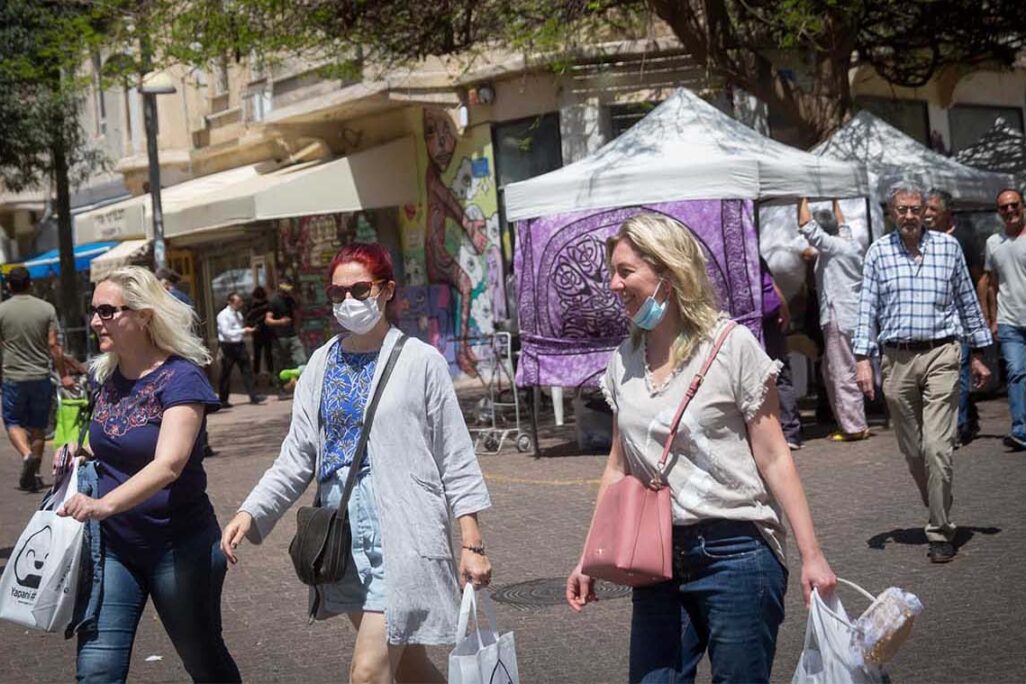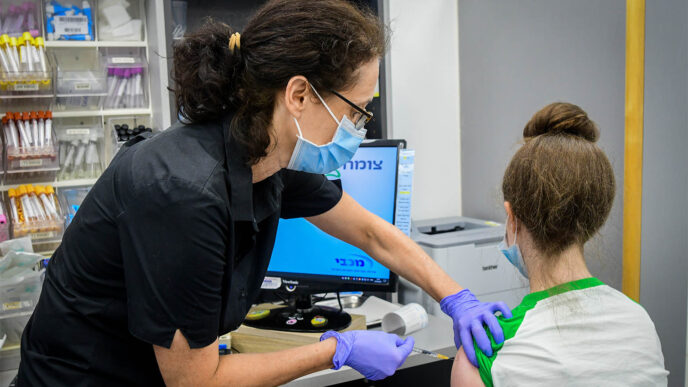
In an effort to curb the recent spike of COVID-19 infections, researchers at the Hebrew University in Jerusalem recommended that the Israeli government return to a ‘watered-down’ version of its Green Pass program for the general public, while increasing safety measures for the high-risk populations. The research team predicts that without a change in restrictions, new COVID-19 infections will continue to rise, with a high likelihood of reaching 1,000 new daily cases within about two weeks. However, they stress that at this stage, it is unclear whether the increase in infection will also lead to an increase in serious morbidity.
The new coronavirus variant known as the Delta variant has swept through Israel during the month of June and has made a noticeable impact on the country. After a brief return to life without COVID restrictions and mask requirements for indoor and outdoor spaces, the new government has reinstated mask orders for public transit and indoor spaces. According to the most recent figures provided by Israel’s Health Ministry, 513 new cases of COVID-19 were recorded, with 102 newly active cases as of Tuesday (5/7) bringing the total number to 2,597; 35 patients are in serious condition and 16 are on respirators.

In a report published this past weekend to the National Security Council, the researchers warn that "waiting without making changes at this stage will require us to take more difficult steps to achieve a similar effect." In addition, they note that the effect of returning the mask requirement in closed places a week ago is "not noticeable at the moment."
According to the report, the coefficient of infection (R), or average number of people that a person infected with the virus can transmit the virus to, has stabilized at about 1.5. This situation is expected to lead to a doubling in the number of daily infections every week. However, the researchers emphasize that "it is not yet possible to estimate how much the current wave of infection will lead to severe illness."
The increase in severe and moderate morbidity is "significantly slower" than the increase in infection, due to the distribution of the age of infected people and the extensive rate of people vaccinated. Despite this caveat, the rate of moderate and severe morbidity lags behind the verified coefficient of infection by five days.
Because there is insufficient information at this stage about the impact of the virus, the researchers recommend focusing efforts on preventing infection within vulnerable populations, with an emphasis on hospitals and nursing homes.
Another issue the researchers point out is that vaccines are noticeably less effective in preventing infection than in the past: about 60-80% effective, compared to estimates of over 90% in the alpha variant. At this stage, there is no research in Israel of the effectiveness of the vaccine in combating severe infection, but it is evident around the world that the vaccine’s effectiveness is similar to the past – approximately 90%.
The report was authored by Professors Yinon Ashkenazi, Doron Gazit, Michael Asaf and Nadav Katz of the Racah Institute of Physics; Professors Ronit Calderon-Margalit and Ran Nir-Paz of the Hebrew University-Hadassah Braun School of Public Health and Community Medicine; and Dr. Hilla De-Leon from the National Institute for Nuclear Physics-Trento Institute for Fundamental Physics and Applications (INFN-TIFPA) at the University of Trento in Italy.
The new coronavirus variant known as the Delta variant has swept through Israel during the month of June and has made a noticeable impact on the country. After a brief return to life without COVID restrictions and mask requirements for indoor and outdoor spaces, the new government has reinstated mask orders for public transit and indoor spaces. According to the most recent figures provided by Israel’s Health Ministry, 513 new cases of COVID-19 were recorded, with 102 newly active cases as of Tuesday (5/7) bringing the total number to 2,597; 35 patients are in serious condition and 16 are on respirators.






